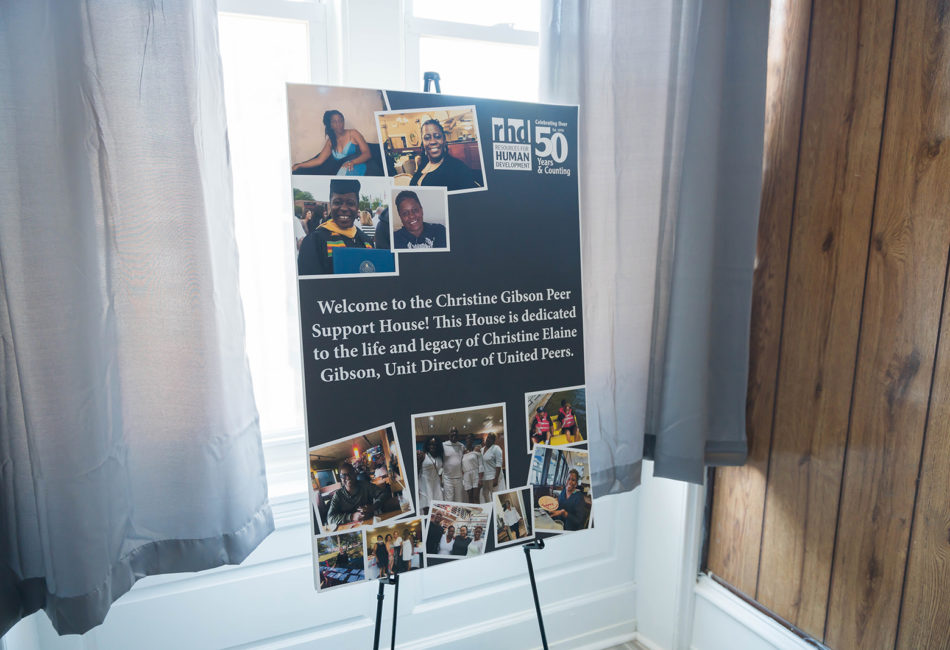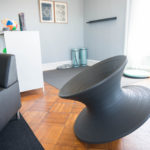Christine Gibson Peer Support House Pays Tribute and Provides Help

September 9, 2022
Christine Gibson was a devoted and beloved member of the RHD community. She earned a B.S. in Human Services in 2009 from Springfield College and a M.S.W. from Widener University in 2013. Christine served as the director for RHD United Peers, a peer-run, wellness, and recovery center for people with MH/Co-Occurring disorders. Christine combined her personal recovery journey and a trauma-informed approach to successfully support and enhance the lives of the staff and participants at United Peers. She braved and triumphed many of life’s challenges, proving one’s past doesn’t define their future.
On February 6, 2021, Christine died suddenly, but she left an indelible impact on many. Her memory lives on with the establishment of the Christine Gibson Peer Support House (CGPSH), a new RHD program opening this year in North Philadelphia.
The CGPSH will provide residential support to individuals suffering with mental health illness following their release from imprisonment or state hospital. It is part of a wide-ranging initiative from the Philadelphia Department of Behavioral Health and Intellectual disAbility Services (DBHIDS) that aims to reduce justice involvement for people with mental health illness by decreasing their length of stay in jail or in a hospital, minimizing reincarceration, and improving connections to services.
According to Gregory Martin, RHD’s Regional Director for Behavioral Health and Housing, “There was a need for a program like this that supports people with mental health challenges, who were also incarcerated. With the death of Christine Gibson and wanting to honor her legacy of supporting peer-run programs, it was suggested this program be named after her.”
Martin notes that CGPSH is unique. The program is open to both men and women and will be staffed entirely by peers – making it the first peer-run crisis center of its kind in Philadelphia!
CGPSH can house up to eight participants at a time, with each participant getting his or her own bedroom. The four-story property has separate floors for men and women. The top floor is reserved for RHD’s clinical division and includes a SMART (Sensory Motor Arousal Regulation Treatment) therapy room. This state-of-the art technology, developed by RHD’s Environmental Design Specialist Leah Forrest, is equipped with varied lighting options and sound/scent/motor/tactile stimulation tools to utilize during therapy sessions.
All CGPSH referrals will come from the City of Philadelphia’s Behavioral Health Justice Division. Participants can stay at the CGPSH for up to 30 days, and during that time, staff will ensure participants are linked to services, such as medical care, drug and alcohol treatment, and trauma group counseling. Martin notes that upon admission to CGPSH, participants should have a discharge plan for when their 30-day residency ends. However, he says, “in some cases, they might not have a plan. In that case, CGPSH will help them determine where they will go at the end of the 30 days.”
CGPSH is a culmination of over two years of work and stands as an innovative RHD program and a tribute to a much-missed member of our community. For more information: https://www.rhd.org/program/cgpsh/.














